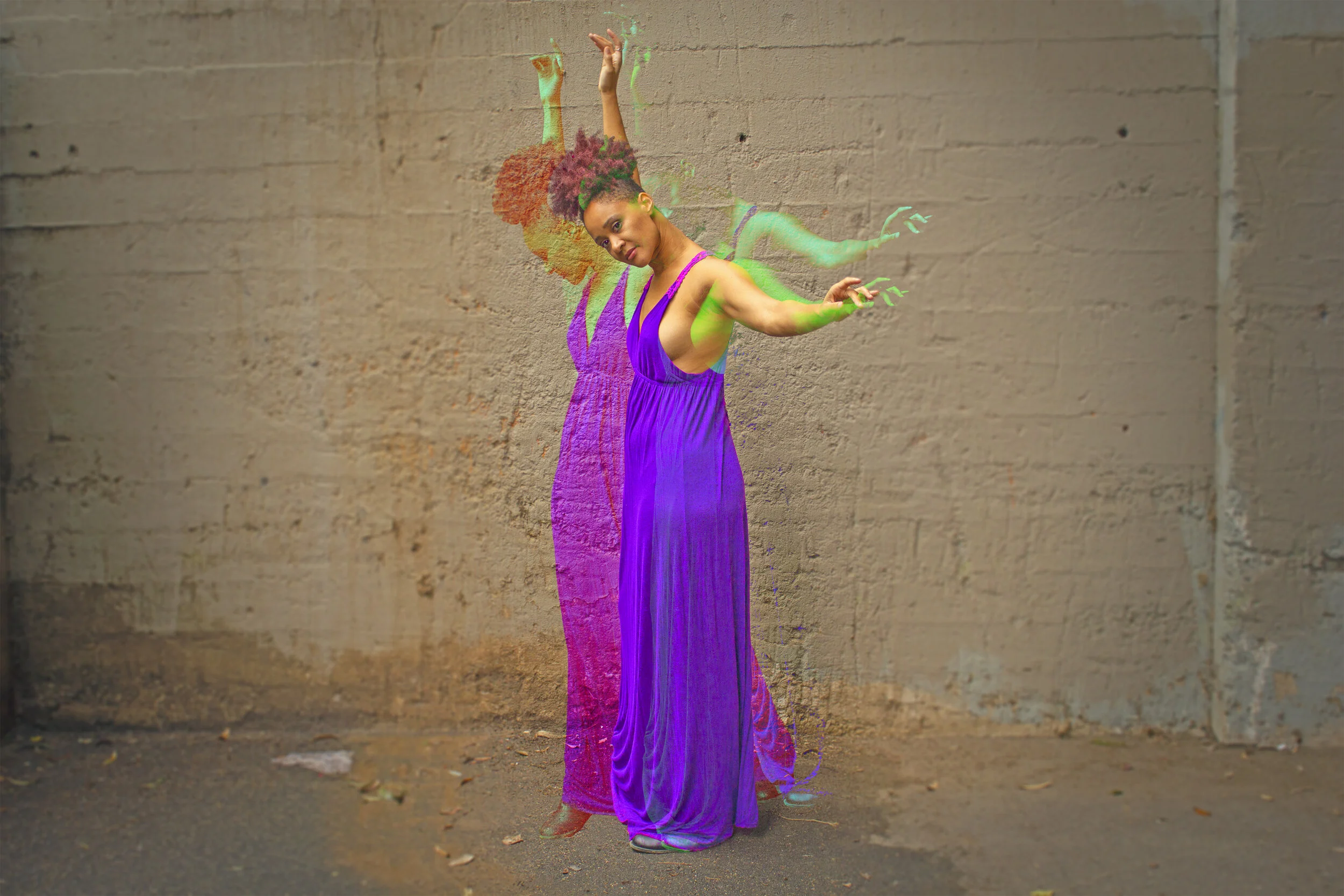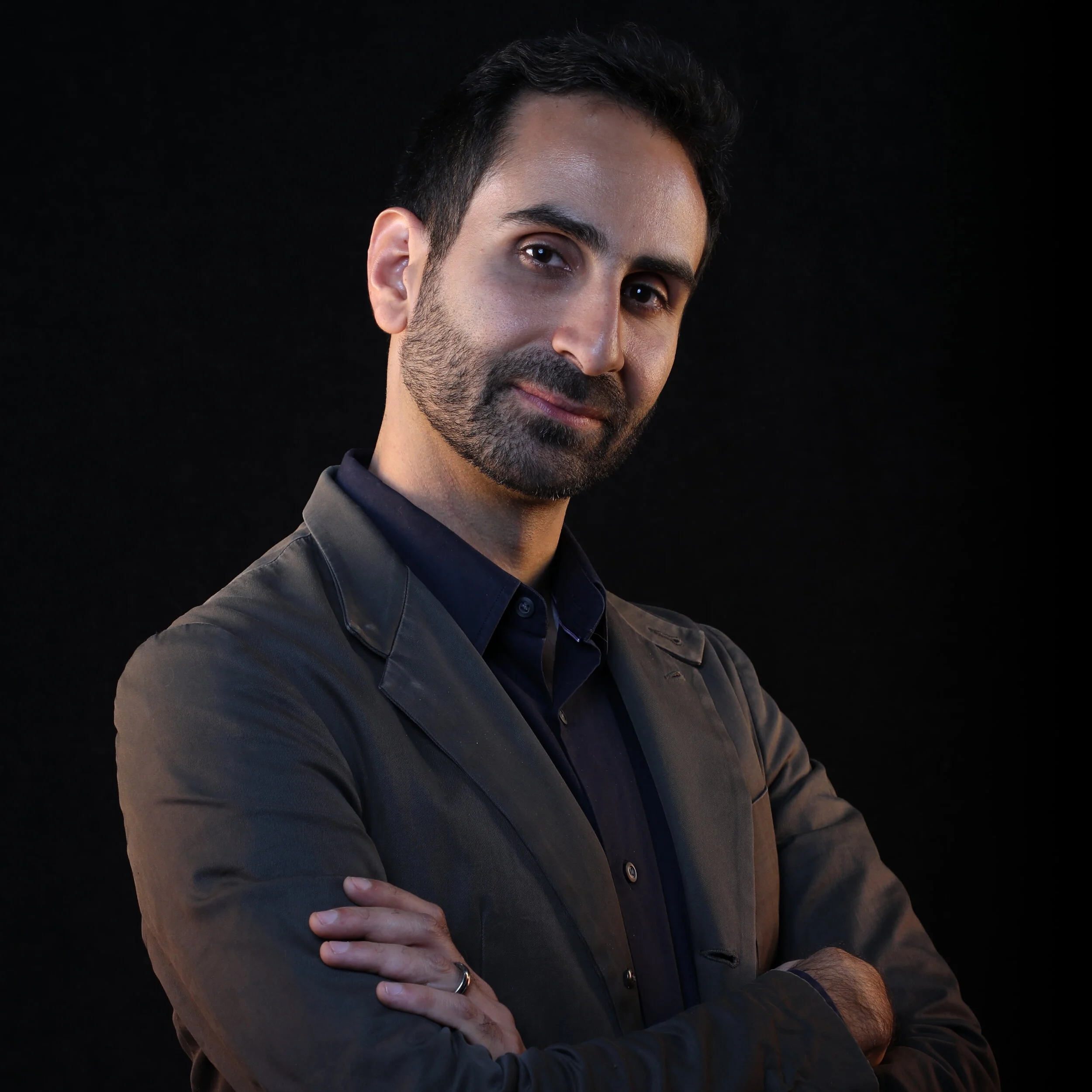Eric K Ward
Eric K. Ward’s alias as a singer-songwriter, Bulldog Shadow, does him justice. He’s resilient, persistent and tough. He’s an organizer and activist on a national scale, a child of poverty and punk rock, and an artist spilling over with ideas.
As the executive director of the Western States Center, Ward backs a mission to strengthen the organizing capacity of often-marginalized communities. He’s also a senior fellow with the Southern Poverty Law Center and the former Program Officer for Gender, Racial, and Ethnic Justice at the Ford Foundation. In other words, he’s the real deal.
His music is a muscular, straightforward brand of Americana that benefits from a heavy dose of punk ethos.
“It's hard to ask people to go to a future that they can't visualize … the role of artists is to help us understand what that world looks like.”
The Road to Activism is Paved with Punk
Looking back, it’s easy to say that Ward’s entire life has been a path to the place where art and activism meet. But he’s quick to point it’s been a circuitous path. “I'm a generation X-er, right? So you know I’m like the the latchkey kid. Single mom,” he says. “We were living in a one room motel in Long Beach, California. She was a working poor mom. And it was a place where you paid by the week.”
“It may be hard to believe, but Long Beach had just started the desegregation of its public schools in the mid/late ’70s. It was just getting underway as I got there, and I found myself being bused to two different schools across town … But the thing about it is, busing in Long Beach didn't necessarily mean getting on a school bus. It's sometimes getting on a city bus to get to school. So my school is way across town … that means walking back and forth once you get off the bus another six blocks or so to the school. And people would drive by this young seventh grader, screaming out things like, ‘go back to Africa,’ calling me ‘monkey,’ ‘gorilla,’ you know, even worse things.”
It was in this environment, in an increasingly diverse school system and adolescent crowd, that Eric found punk. His introduction came from a neighbor who’d just purchased Black Flag’s Nervous Breakdown. “He puts on this album and it's so fast,” Ward says. “It’s like, I think I'm having a heart attack, right, like, I don't even know what I'm hearing it's so … it felt like an onslaught. And I was just like, ‘what is that?’ And he said, ‘it's punk.’ And I fell in love with punk on that day. And for the next 10 to 15 years it scared the shit out of me.”
He was soon going to shows at Olympic Auditorium and other notorious LA venues, and even joining bands. Members of the group he left when he moved to Oregon went on to form Sublime. “I don’t know if I deserve praise or need to give apologies,” he laughs.
As Ward says, “punk rock saved my life, but punk rock changed my life as well.” Punk brought him to Eugene, Oregon and to Seattle at the apex of indie rock in America. Punk, hip-hop and alternative rock grew in prominence thanks to college radio, and created vibrant scenes in cities across the country. Grunge reared its head, and nothing was the same.
For Ward, it was a natural move from punk to organizing and then later to songwriting. “I'm up there, just kind of doing my thing. I've become a human rights organizer. That's where I put my creativity, and my energy … I was on the advisory board of Home Alive, which was an organization in Seattle that started after the rape and murder of Mia Zapata from the Gits. And it was a self-defense project for women — not only physical self-defense, but what did it mean around boundary settings and consensual interaction … then it was very radical, and it was women who were part of the riot grrrl scene.”
Over the next few years, Eric’s organizing and activism work deepened as he maintained a casual on-again-off-again relationship with the guitar. It wasn’t until 2011, when he found himself working in New York, that he forged the time to hunker down and begin carving out songs. “There was a great Americana folk revival that's kind of happening at that point. You, know folks like singer-songwriters are back in a real way … Folks are telling their stories again, and their stories are really resonating with me.”
“The truth is that you can tell your own stories,” he says. “I have found that it’s another way to share the common part of us all. By being really open and vulnerable, with the people you talk to. We use a term in organizing called ‘courageous conversation’ … And for me songwriting is probably the most vulnerable form of courageous conversation, one can have.”
The summer of 2020 is a fruitful time for an activist, but also a trying time. Ward feels the weight of the moment, but works to balance it with hope and with art. “In this moment, mentally I feel exhausted. I think, like most black leaders, it is already struggling with the COVID pandemic and with deep unemployment. Right now, I think, one out of every 1,650 African Americans has died from COVID-19. In the United States, in the last four months. That is a number that is staggering.”
He adds, “I go from moments of just wanting to rage, right, you know, which you know is, like, not the condition to make decisions, you know, based off of, and then I find myself in moments of just deep inspiration and appreciation. I'm so inspired by people who have taken to the streets … but I'm also inspired by just the day-to-day things. We treat ourselves as if everything we do must look like the March on Washington … Everyone has the right to live, love and work, free from fear and bigotry. We're at a moment where the majority of Americans are saying ‘that's absolutely right.’ That we all have that right, we all have that opportunity. And it's time to make sure we hold on to that, and that lifts me up, that lifts me up.”
What Can Artists Do Right Now?
He acknowledges that artists are anxious in this moment. We want to do important work. We want to help. But how? “There's a lot of conversation around what should we be doing as artists. And I think that is a fair question. I feel like the answer, though that we often come to is actually not the right answer, because our answer is, ‘oh we need to go be like the activist on the front lines, or we need to go be the politicians or we need to go be the policy folks,’ but really what we need to do right now is to actually be artists and to be creative.”
“Artists right now can do lots of things. One is they already know how to do art that helps people understand the moment we are in and where we should be going, and helping us understand what it looks like. It's hard to ask people to go to a future that they can't visualize. That they can't comprehend. That is a really scary thing … And the role of artists is to help us understand what that world looks like what it feels like. It’s to prepare us.”
“I tell folks art matters more than it probably ever has. And if really didn't matter, those who lean to authoritarian styles of government and culture wouldn't be spending so much time trying to defund it and making sure there's not support for it. It matters because it is how we express our souls and it expresses a common soul.”






